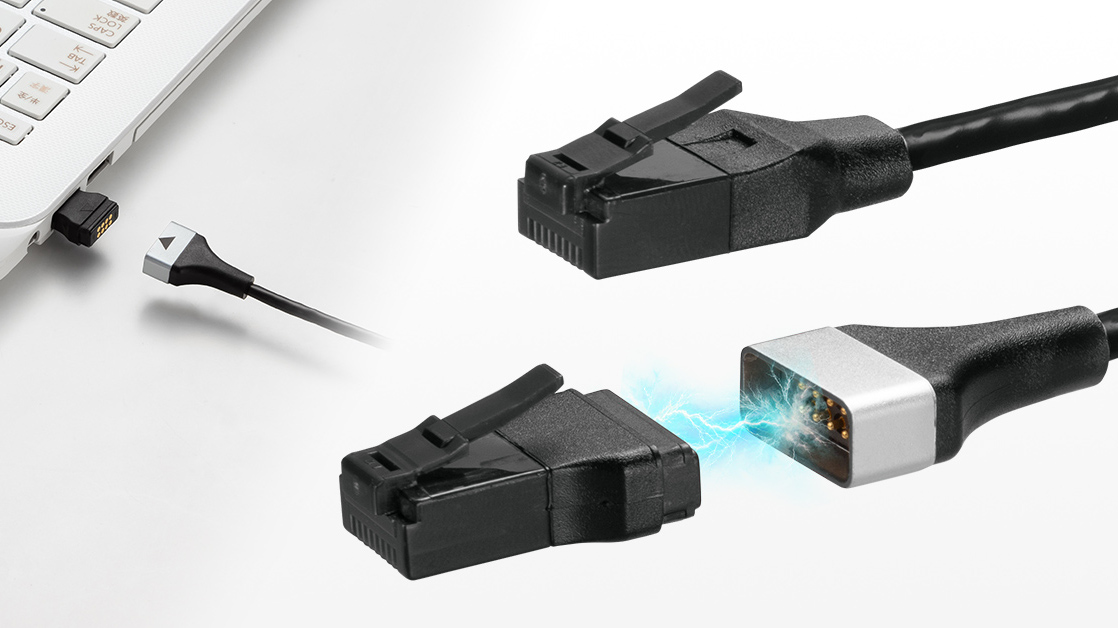
Japanese manufacturer Sanwa announced a new series of Ethernet cables with magnetically detachable connectors that 'break' at the Ethernet port [h/t GDM.OR.JP]. These should prevent the wires from becoming tripping hazards at threat to hardware or people, and will also lessen the chance of an accidental yanking on the ethernet cord that could injure the port. The Sanwa KB-SL6ABA series Ethernet cables have slim, soft cabling design and support the CAT6A standard at 500 MHz bandwidth, which reaches speeds of up to 10 Gigabits per second.
These new Sanwa Ethernet cables immediately recall the design of Apple's "MagSafe" cables, which function under the same principle but are used for charging cables instead. Like MagSafe branded connectors, Sanwa's magnetically detachable Ethernet cable will come smoothly unplugged whenever someone trips on or tugs on the cable, preventing damage to the hardware or network port so long as the fall or trip doesn't also break something.
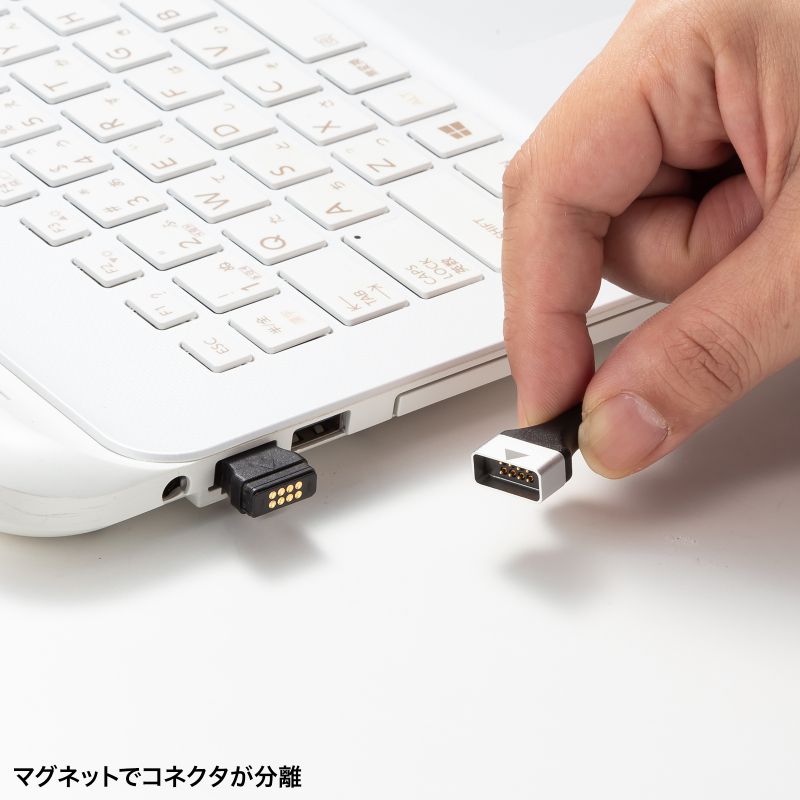
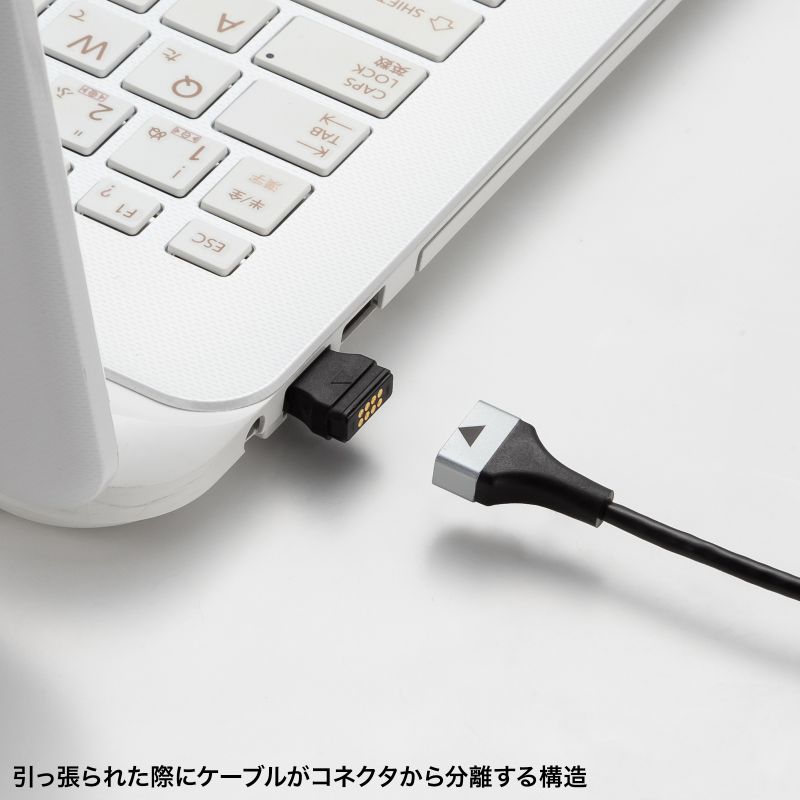
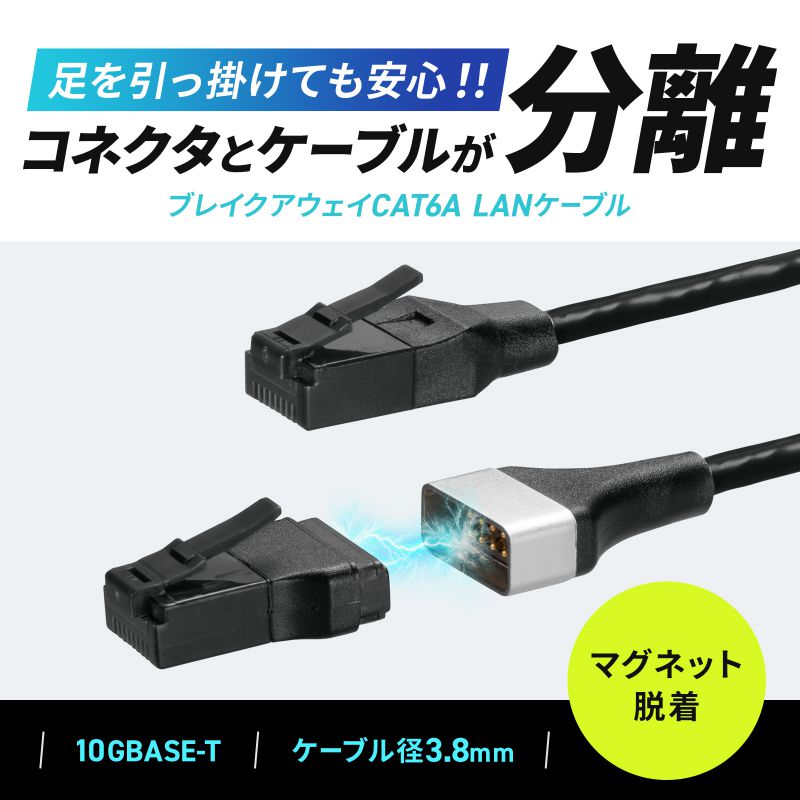
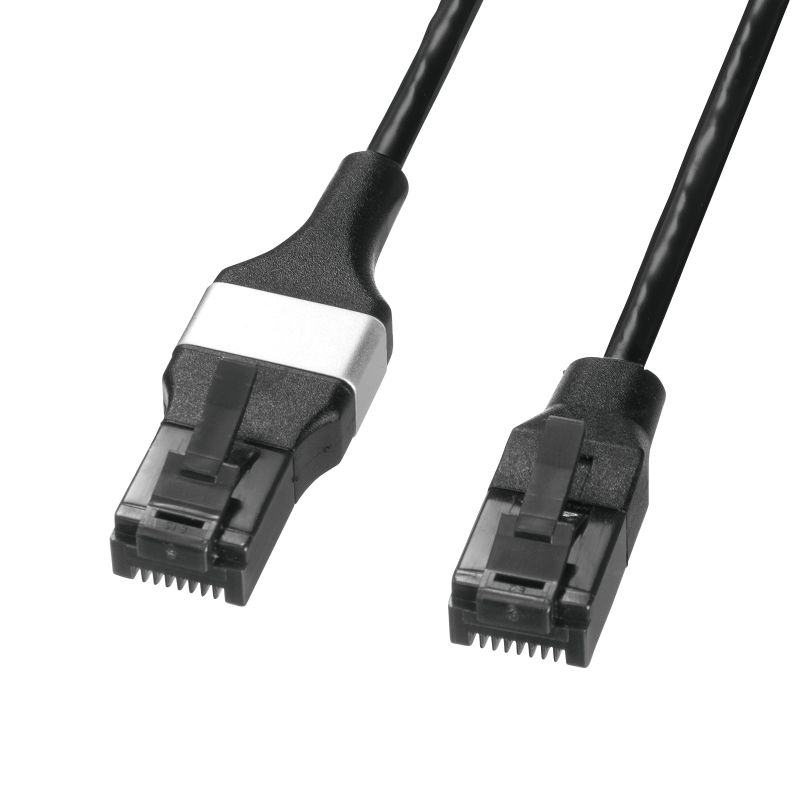
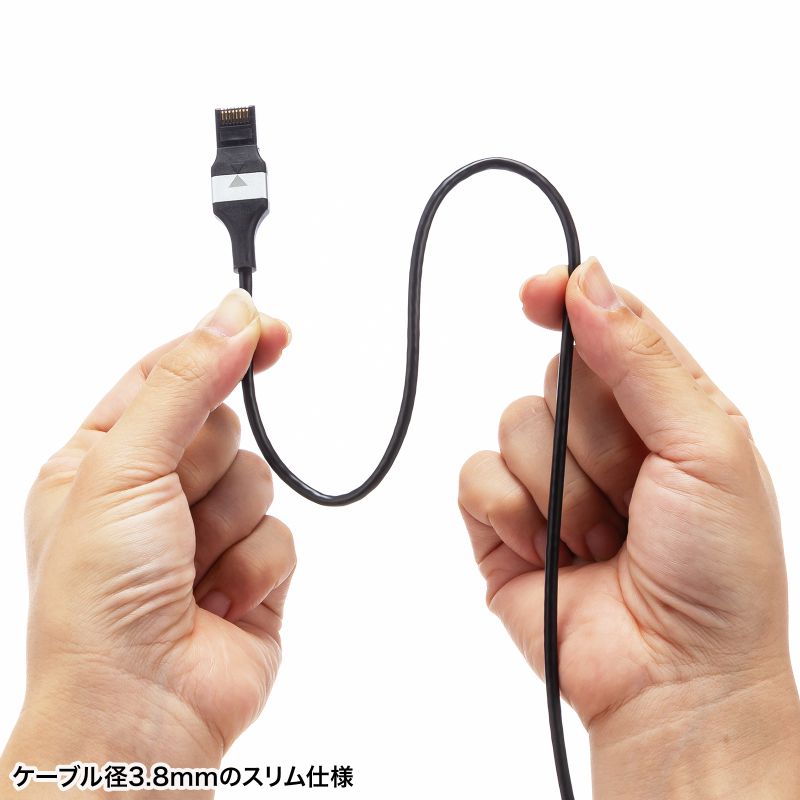
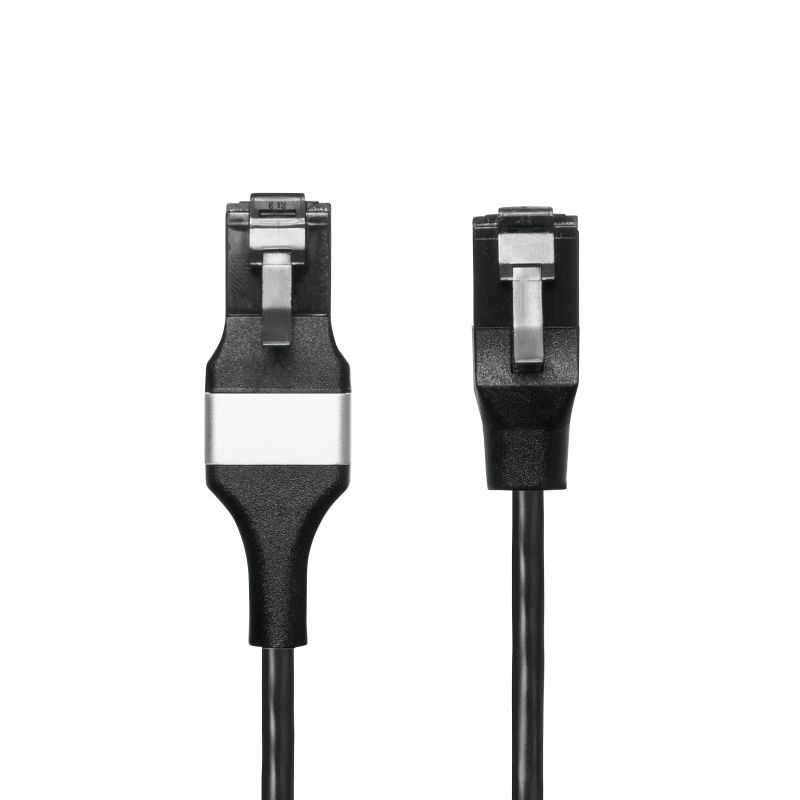
On the Japanese side, these Sanwa magnetic Ethernet cables are dubbed the Sanwa KB=SL6ABA series, start at 4180 yen (about $27) for a 1-meter cable and go up to 6600 yen (about $42) for a 10-meter cable. The other models include a 2-meter cable, a 3-meter cable, and a 5-meter cable. These are all certainly much more expensive than standard Ethernet cables, but if you find yourself using Ethernet cables in areas with heavy foot traffic a lot, especially if you happen to work with lots of children or animals, the cables could save you some money and headaches.
While Sanwa is typically known for its high-end radio gear (and arcade sticks among fighting game players) and keeps a lot of its released hardware in Japan, we hope they bring this magnetically detachable series of Sanwa KB-SL6ABA cables Stateside. As we see it, there's really no reason this needs to stay Japan exclusive— though the original Sanwa store page is still available for those willing to brave international shipping for these.
For most users, we imagine paying that much for a marginally better Ethernet cable will be harder to justify...but if it suits your use case, and you probably know if it does, that extra $20 on top of what you'd normally pay for an Ethernet cable does make some sense.







